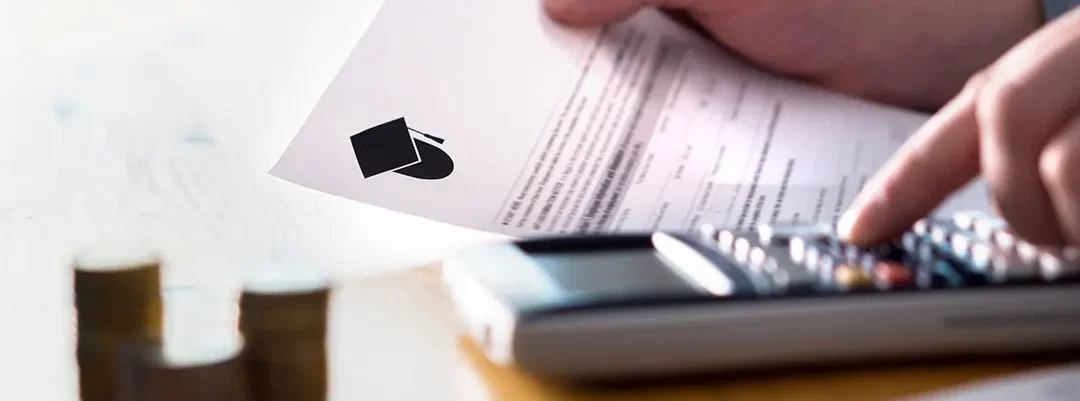According to statistics compiled by NerdWallet, some 42.9 million Americans owed $1.57 trillion in student loan debt to the U.S. Department of Education (ED) at the close of 2020. This accounts for about 92% of all student loan activity. The private sector has about $131.8 billion in student loans outstanding, representing 7.87% of total borrowers.
When the pandemic struck in March 2020, the federal government moved quickly to provide relief to federal student loan borrowers, lowering the interest rate to 0% and forgiving student loan repayment with an initial deadline of September 30, 2020. The deadline keeps getting extended and now stands at September 30, 2021.
Our team of consumer protection attorneys at Stecklein & Rapp has been monitoring all the updates on student loan relief and will be happy to answer any questions you have and help you resolve any difficulties you may encounter. We proudly serve clients in Kansas City, Kansas, Kansas City, Missouri, Lincoln, Nebraska, as well as the surrounding communities.
COVID-19 Emergency Relief Measures
On March 20, 2020, the office of Federal Student Aid at the Department of Education announced temporary measures to help student loan borrowers during the pandemic. Loan payments were suspended, collections halted on defaulted loans, and the interest rate on all loans lowered to 0% effective March 13 of that year.
A week later, the Coronavirus Aid, Relief, and Economic Security (CARES) Act formalized these measures and extended them through September 30, 2020. As the fallout from the pandemic continued to affect society as a whole, the deadline kept getting extended until, on January 20, 2021, the new deadline was set for September 30, 2021.
The law does not affect holders of private loans, only those with government-backed loans. The process is automatic, so no action is required on the part of student debtors. Payments and collections have been stopped automatically, and 0% interest applied throughout the forbearance period. During this period of forgiveness, you can still make your payments voluntarily, which will be applied to reduce the principal with no interest charges.
On March 30 of 2021, relief was extended to federal student loans in default under the Federal Family Education Loan (FFEL) Program retroactive to March 13, 2020. FFEL loans owned by private lenders are not covered by the forbearance program.
How Income-Driven Repayment Is Affected
If you are on one of the four Income-Driven Repayment (IDR) plans offered by the government, your payments will also be suspended and interest rates dropped to 0%. IDR plans are available to reduce the monthly repayment amount based on your income and family size.
These plans also incorporate a recertification process that requires enrollees to periodically update their qualifying income. The recertification process has also been halted during the suspension period. You will be notified of a new date once the COVID-19 relief cycle ends. You can voluntarily update your income if you choose, which makes sense if it drops significantly.
Disability Discharge
Borrowers who have been forgiven for their obligations through the Total and Permanent Disability Discharge program are normally required to update their income annually. If their income rises above their state’s poverty guideline based on family size, their loans can be reinstated.
On March 29, 2021, the government waived the recertification requirement retroactive to March 13, 2020. The recertifications should resume following the end of pandemic relief.
Resumption of Payments
The relief period could be extended, but right now any resumption of monthly payments would not be possible before October 1, 2021. The government has promised, once the relief period ends, to provide borrowers with at least a 21-day advance notice of payment resumption.
Your payment may go up or down depending on a variety of factors. If you’re on an IDR payment plan, the payment will remain the same unless you voluntarily updated your income. If you’re on a traditional repayment plan — such as a standard, graduated, or extended repayment plan — your loan will be recalculated. If you made voluntary payments during the forgiveness period, your monthly payment could go down.
Our Team at Stecklein & Rapp is Ready to Help
Our team of consumer protection attorneys at Stecklein & Rapp (formerly Consumer Legal Clinic, LLC) has been helping individuals and families with credit and debt issues for more than two decades. Though COVID -19 student relief is designed to be automatic and painless, other issues can arise affecting your financial well-being. You may just wish to get solid financial advice on moving forward after the relief period concludes.
Whatever your issue, you can rely on us. With locations in Kansas City on both sides of the Kansas and Missouri state line, as well as in Lincoln, Nebraska, our team at Stecklein & Rapp is there to assist you. Contact us today for an initial consultation, regardless of your credit or debt issue.

